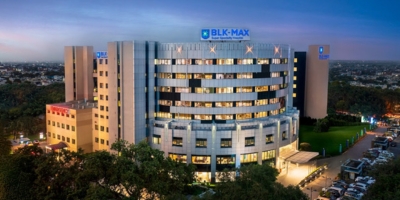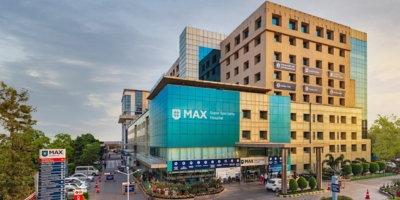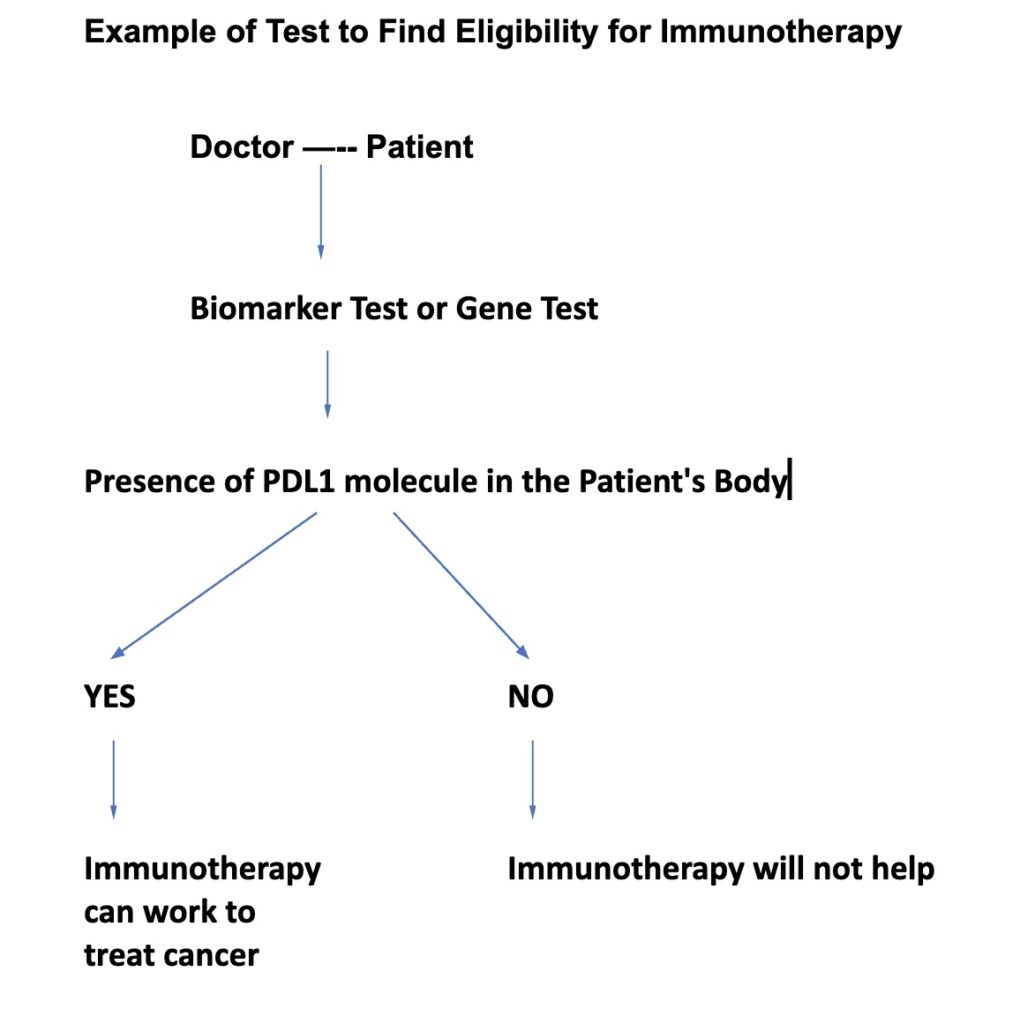Immunotherapy for Pancreatic Cancer in India: Costs, Hospital & Success Rate
Battling untreatable pancreatic cancer? Affordable immunotherapy for pancreatic cancer in India can help you live longer. Read more to discover top hospitals & oncologists.
What Is the Cost of Immunotherapy for Pancreatic Cancer in India?
The cost of Immunotherapy for pancreatic cancer in India starts at $1,200 for basic medications and can go up to $85,000 for advanced treatments like CAR T-cell therapy.
- Stay and meals for the patient during the treatment plan
- Complete therapy (including all lab work, blood work, and genetic alterations)
- Consultation of the main specialist and full team
- All medications as per the treatment plan
- Additional stay and meals post-treatment plan
- Investigation and follow-up phases of the treatment
- Additional surgery or procedure
- Consultation with a doctor of an unrelated specialty
- Medication apart from the treatment plan
- Extra specialized equipment & PPP are required
Here's a detailed comparison of different types of immunotherapy and their costs:
|
Type of Immunotherapy |
About the immunotherapy |
Cost in India in USD |
Cost in the US in USD |
| Non-Specific Immunotherapy | Administering general drugs to increase the immune system | Starts at $1200 | Ranges between $15,000 - $30,000[1][2] |
| Monoclonal Antibodies | Man-made proteins that are inserted in body to act like antibodies | $1500[3] | Over $100,000[4] |
| Immune Checkpoint Inhibitors | Medication boosting the immune system by removing all checkpoints in fighting cancer | $82,000[5] | $250,000[6] |
| T-cell Therapy (CAR T-cell therapy) | Use of a part of patient’s white blood cells to fight cancer by modifying them in a lab | $50,000 - $85000 | Over $400,000.[7] |
Want to learn more about costs and hospitals? Read our articles on immunotherapy for cancer in India.
Cost of Other Treatments for Pancreatic Cancer in India
Apart from immunotherapy, other treatments for pancreatic cancer in India include chemotherapy, radiation, and surgery. These treatments start from USD $6,500 in India, whereas similar treatments in the US can cost significantly more.
|
Treatment |
Cost in India in USD |
Cost in the US in USD |
| Chemotherapy | $250 - $300 | $11,641[8] |
| Radiation Therapy | Starts at $4400 - $6500 | $14,410[9] |
| Surgery | $11,400 | $37,000 - $57,000[10] |
Besides pancreatic cancer, immunotherapy for prostate cancer in India is also highly effective.
Overview of Immunotherapy for Cancer in India
Immunotherapy uses the body's immune system to fight cancer. Immunotherapy is a way to help the immune system fight cancer by giving drugs to enhance the immune system or by using lab-made substances that act like immune cells.
Immunotherapy can be combined with other methods like chemotherapy and radiation therapy. There are different ways to use immunotherapy for cancer.
One way is to give drugs that make the immune system stronger. This is called non-specific immunotherapy. Although it doesn't always target cancer directly, it can still be very effective in treating it.
Another method uses proteins such as cytokines to boost the immune system. Cytokines help the immune system work better. The cost of these treatments depends on what stage of cancer the patient is in and what medications are required.
Different Types of Immunotherapy
There are several types of immunotherapy used to treat cancer:
This involves the usage of general drugs designed to boost the overall activity of the immune system. They don't target a specific disease but instead enhance the body's natural defenses. This can help the immune system attack cancer cells or other pathogens more effectively.
These are synthetic proteins created in a lab that act like the body's natural antibodies. They can be designed to attach to specific targets, such as cancer cells, marking them for destruction by the immune system. This targeted approach helps in treating various diseases, including cancer.
These medications work by blocking the checkpoints in the immune system that cancer cells use to avoid being attacked. By removing these brakes, the immune system can better recognize and destroy cancer cells, improving the body's ability to fight the disease.
This advanced treatment involves taking a patient's own T-cells (a type of white blood cell), modifying them in a lab to enhance their ability to recognize and kill cancer cells, and then infusing them back into the patient. This personalized approach can be highly effective in treating certain types of cancer.[11]
Want to know more about advanced treatment for pancreatic cancer? Read our detailed article on CAR T-cell therapy.
Immunotherapy and Pancreatic Cancer
Pancreatic cancer is the fourth-leading cause of cancer-related deaths in the US. Pancreatic cancer severely impacts the body, but immunotherapy can offer effective treatment.
Research and clinical trials in India are promising, with some of the top hospitals and specialists leading the way.
Procedure: Complete Guide to Immunotherapy for Pancreatic Cancer in India
Overseas patients can access comprehensive details on how to receive immunotherapy for pancreatic cancer in India, from initial consultation to treatment and follow-up.
- Initial Evaluation and Biomarker Testing: Comprehensive review of medical history and tests, including biomarker and gene testing, to determine eligibility for immunotherapy.
- Personalized Treatment Plan: Development of a customized plan based on patient-specific factors and the type of immunotherapy most suitable, such as immune checkpoint inhibitors or CAR T-cell therapy.
- Pre-Treatment Preparations: Patients follow specific protocols, including dietary guidelines, quitting smoking, and undergoing additional health assessments.
- Administration of Immunotherapy: Treatment administered intravenously, orally, or through local injection, with sessions lasting several hours and varying in number based on the treatment plan.
- Continuous Monitoring: Close monitoring during treatment for adverse reactions and effectiveness, involving regular blood tests, imaging scans, and physical exams.
- Post-Treatment Support: Provision of supportive care to manage side effects and aid recovery, including pain management, nutritional support, and physical therapy.
- Regular Follow-Up Appointments: Scheduled to monitor progress, assess treatment response, and adjust the treatment plan as necessary.
Plan Your Travel
- Overseas patients can get safe and affordable immunotherapy treatment for cancer in India. Immunotherapy can be done alongside other cancer treatments or when other treatments fail.
- Our medical advisors contact you and collect all your existing reports, initial medical files and scans to evaluate.
- Upon examination, our team finds the perfect immunotherapy centre in India for your needs.
- Specialists in India check patients' existing gene test results to see if immunotherapy is needed. If so, a treatment plan is created, and the patient travels to India.
- Our medical advisors are connected with the patient throughout the journey, ensuring travel paperwork and the journey are seamless.
- Once in India, our team helps find accommodation and handles all logistics to make the patient journey comfortable.
- Doctors conduct more tests to determine whether the patient is eligible for advanced levels of immunotherapy.
You may also explore the promising outcomes and effectiveness of immunotherapy for lung cancer in India.
Candidate for Immunotherapy in India for Pancreatic Cancer
Not all patients with cancer can get immunotherapy. To be eligible for the treatment, your physician will conduct several tests, including Biomarker Testing or Gene Testing.
Biomarker Testing identifies specific changes in the patient's DNA caused by cancer, determining the best treatment options. For example, an important indicator to do immunotherapy is the presence of PDL1 biomarker in the patient.
PD L1 is a molecule that usually keeps our immune system in check. However, in cancer patients, PDL1 can allow the cancer cells to escape the T-cells trying to attack them.
PD L1 interferes with the body's anti-cancer immune response and does not allow the body to become healthy. By giving immunotherapy drugs and inhibitors, the PDL1 interference can be stopped, making the body healthy again.
This is why it is important to identify biomarkers and other blood tests to determine whether a patient is eligible for immunotherapy.
Prepare for Immunotherapy for Pancreatic Cancer in India
To prepare for immunotherapy, patients need to follow some protocols:
- Tests before treatment: The patient will undergo specific gene tests, such as biomarker tests, to assess eligibility for immunotherapy. Pre-therapy tests could also include routine blood tests and imaging scans to assess the patient’s health.
- Quit smoking and drinking alcohol: Smoking and alcohol consumption can gravely harm your body.
- Eat Healthy: A balanced diet is imperative to boost a person’s immune system. Eat fruits, vegetables, whole grains, and lean proteins. Follow the doctor’s recommendations on diet.
- Stay hydrated: Drinking plenty of water removes toxins and helps the immune system stay strong.
- Support: The therapy has side effects and can make the patient weak. International patients are welcome to bring a family member along with them.
Benefits of Immunotherapy for Pancreatic Cancer
Immunotherapy offers targeted treatment, minimal side effects compared to traditional methods, and can be combined with other treatments for enhanced effectiveness.
- Immunotherapy may be beneficial for patients with advanced pancreatic cancer who have not responded well to other treatments.
- It strengthens the body's natural defenses, helping the immune system recognize and attack cancer cells more effectively.
- Compared to traditional treatments like chemotherapy, immunotherapy may have fewer side effects, as it aims to be more precise in targeting cancer cells.
- Immunotherapy can provide a lasting immune response, offering prolonged protection against cancer recurrence.[12]
Side-Effects of Immunotherapy for Pancreatic Cancer
While generally safer than conventional treatments, immunotherapy can cause the following side effects:
- Endocrine Disruptions: It can affect the endocrine system, potentially leading to thyroid problems or changes in hormone levels.
- Fatigue: Patients may experience extreme tiredness and a general lack of energy.
- Skin Reactions: Common skin-related side effects include rashes, itching, and redness.
- Flu-like Symptoms: Patients might develop symptoms such as fever, chills, muscle aches, and headaches.
- Digestive Issues: Nausea, vomiting, diarrhea, or changes in appetite are possible side effects.
- Inflammation: Immunotherapy can cause inflammation in various parts of the body, including the lungs (pneumonitis), liver (hepatitis), or intestines (colitis).
- Organ Damage: In rare cases, immunotherapy can cause damage to organs such as the heart, kidneys, or liver.
- Allergic Reactions: Some patients may have allergic reactions to the treatment, ranging from mild to severe.
- Autoimmune Reactions: The immune system might attack healthy cells, mistaking them for cancer cells, leading to autoimmune conditions.
- Respiratory Issues: Shortness of breath or other respiratory problems may occur.[13]
What Is the Success Rate of Immunotherapy for Pancreatic Cancer?
The success rate of immunotherapy for pancreatic cancer is 75%.[14]
Research shows promising results, aligning with global trends. Immunotherapy, which leverages the body's immune system to fight cancer cells, has significantly improved outcomes for many patients.
Best Hospital for Immunotherapy for Pancreatic Cancer in India

JCI-accredited, it is one of the largest private hospital. It ranks among the top 10 multi-specialty hospitals.
Dedicated services for medical tourists from over 100+ countries.
It serves local and international patients, specializing in orthopedic treatments, cancer, bariatric surgery, and cardiology with advanced, European-standard equipment.
- 60+ Years of Experience
- JCI Accredited
- NABH Accredited
- Advanced technology medical oncology like immunotherapy, targeted therapy and chemotherapy
- Leading medical oncology specialists with organ-specific expertise
- Round-the-clock critical care with OPD services, which are designed for an organ-specific approach

Accredited by NABH and NABL, Max Vaishali offers advanced care across 28 specialties, backed by 259 expert doctors and 610+ skilled nurses.
This 370+ bed hospital features 128 critical care beds, 16 HDU beds, and 14 modular OTs equipped with cutting-edge technology.
- NABH Accreditation
- NABL Accreditation
- 28+ Specialities
- State-of-the-art facilities and comprehensive support services for patients undergoing advanced immunotherapy like CAR-T cell therapy.
- Top haematology experts who provide advanced oncology care to patients.
- NABH-accredited multidisciplinary hospital with over 260 leading specialists.

NABH-accredited, this hospital is a renowned 250-bed hospital in New Delhi.
The hospital is well-equipped with Tesla MRI and Cath Labs and 50+ critical beds. With this, it offers Orthopaedics, Cardiology, Urology, Neurology, Paediatrics, Obstetrics, and Gynaecology.
- NABH Accredited
- 300+ Doctors
- 22+ Departments
- JCI-accredited with high-tech equipment like Da Vinci Robot, Novalis Tx for IMRT/IGRT, Radiosurgery, HIPEC and SRS/SRT for oncology care
- Pioneers in all kinds of cancer treatment, including immunotherapy, hormone therapy and stem cell transplant
- Highly skilled oncology team, including specialists with over 4 decades of experience
Best Specialists for Immunotherapy for Pancreatic Cancer in India

Dr. Pramod Kumar Julka( Max Super-Speciality Hospital Patparganj )
Padma Shri awardee Dr. Pramod is a renowned oncologist, trained at MD Anderson and Long Beach Memorial, USA.
He is affiliated with American and European medical associations, recognized for his exceptional contributions to cancer care.
Education
- Maulana Azad Medical College, New Delhi, India
Memberships
- American Society of Clinical Oncology
- National Advisory Committee of Global Cancer Summit

Dr. Esha Kaul( BLK-Max Super Speciality Hospital )
American board-certified, Dr. Kaul is the Director of Hematology, Hemato-Oncology, and BMT at Max Hospital.
As a DNB in Hematology from Tufts Medical Center, USA, she is among the few doctors in India offering advanced treatments in her field.
Education
- All India Institute of Medical Sciences
- Tufts Medical Center, USA
Memberships
- American Society of Hematology
- American Society of Transplant and Cellular Therapy
- International Myeloma Society

Dr. Chandragouda Dodagoudar( BLK-Max Super Speciality Hospital )
Dr. Dodagoudar was awarded the Best Resident Doctor at RGCI & RC from the Honourable Vice President of India.
He has also received the Bharat Jyoti Award from NGO - India International Friendship Society.
Education
Rajiv Gandhi University of Health Sciences, Bangalore, India
Memberships
- Delhi Medical Council
- Karnataka Medical Council

Dr. Meenu Walia( Max Super-Speciality Hospital Patparganj )
India's first to achieve a DNB in Medical Oncology, Dr. Walia leads Oncology & Hematology at Max Super Specialty Hospital.
She is a Bharat Jyoti Award awardee and has multiple IMA awards for Medical Excellence.
Education
- University of Delhi, India
Memberships
- American Society of Clinical Oncologists
- European Society for Medical Oncology
- Indian Medical Association

Dr. Gopal Sharma( Max Super-Speciality Hospital Patparganj )
Specializing in Haemato-medical Oncology, Dr. Sharma is a part of the Indo-American Cancer Association (IACA).
He excels in hematological malignancies and targeted chemotherapy for solid cancers.
Education
- Gujarat Cancer Research Institute, Ahmedabad, India
Memberships
- American Society of Clinical Oncology
- European Society of Medical Oncology
- Indian Society of Medical and Pediatric Oncology
Conclusion
Immunotherapy for pancreatic cancer in India offers advanced treatment options at an affordable cost. Contact us to embark on your journey towards healing in the best hospitals.
Why MTC Partners in India Have the Best Immunotherapy Program for Pancreatic Cancer?
MTC partners in India offer top-tier immunotherapy programs for pancreatic cancer, leveraging advanced research, cutting-edge technology, and highly skilled specialists.
Partner clinics are outfitted with state-of-the-art facilities and adhere to international standards and protocols approved by regulatory bodies, ensuring the highest levels of safety and efficacy.
These partnerships emphasize personalized care, tailoring treatment plans to meet individual patient needs, similar to the meticulous approach seen in complex surgeries like Whipple procedures.
Whipple surgery, a sophisticated operation involving the removal of parts of the pancreas and surrounding organs, exemplifies the high level of surgical expertise available in India.
Whipple surgery is a preferred method for treating pancreatic cancer confined to the head of the pancreas, ensuring comprehensive care and improved patient outcomes.
By collaborating with leading hospitals renowned for their oncology and immunotherapy expertise, MTC ensures patients receive extensive support throughout their treatment journey, from initial consultations to post-treatment care.
This commitment to excellence, combined with significant cost savings compared to Western countries, positions MTC partners in India as the premier choice for patients seeking world-class immunotherapy for pancreatic cancer.
Frequently asked questions (FAQs)
The cost of immunotherapy for pancreatic cancer in India starts from USD 6500. This is very cost-effective compared to the high costs in the US.
The success rate of immunotherapy for pancreatic cancer has been seen up to 25% in advanced cases.
While the typical response rate of cancer patients to immunotherapy drugs ranges from 20% to 50%, selecting patients carefully can get response rates as high as 70%.
References
- Wellcome: More people should have access to monoclonal antibodies. Covid-19 can make that happen
- TOI: Monoclonal therapy a hit despite price
- Pubmed: Pricing of monoclonal antibody therapies: higher if used for cancer?
- Jama Network: Estimated Costs and Long-term Outcomes of Patients With High-Risk Non–Muscle-Invasive Bladder Cancer
- ASCO Publications: Effectiveness of Immune Checkpoint Inhibitors
- NCBI: The future of affordable cancer immunotherapy
- WebMD: Types of Immunotherapy
- Fred Hutch Cancer Center: Immunotherapy for pancreatic cancer boosts survival more than 75 percent in mice, study finds




